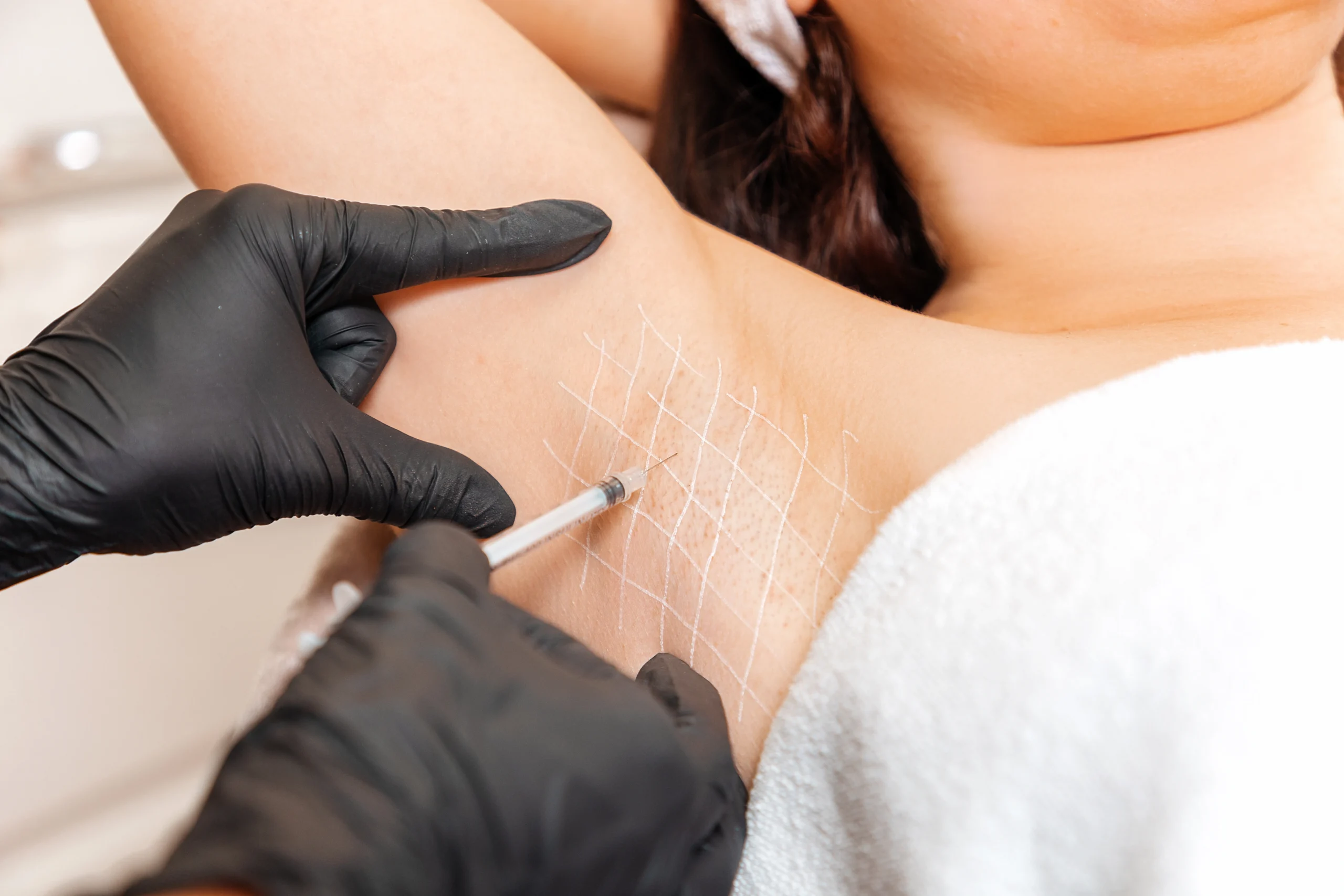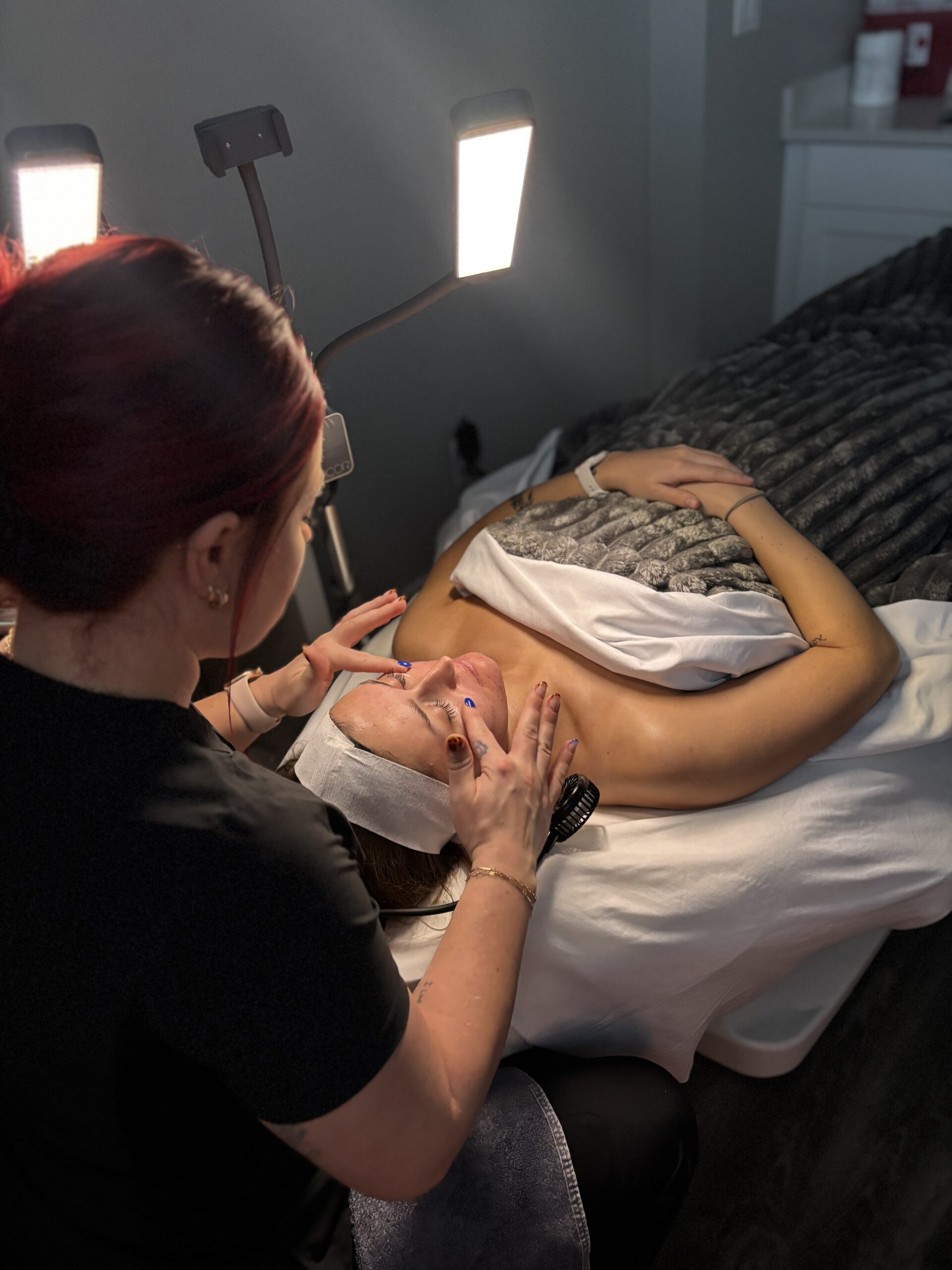
Pulling out clumps of hair in the shower or finding multiple strands in your hairbrush each morning can be distressing. Thinning hair or bald patches can be a cause for concern, especially if it is consistent, affecting your self-esteem, and has suddenly appeared out of nowhere. Hair loss can be caused by multiple factors, including stress, but it is often linked to an underlying cause like hormonal changes or medical conditions. This blog will look at how stress can trigger hair loss or worsen your existing hair condition.
Extreme levels of stress typically result in one of these three hair loss types.
Temporary hair loss is known as telogen effluvium and is the loss of your resting hair. Since our hair grows in cycles, 85-90% of our hair is growing, while the rest is in the telogen or resting phase. When our bodies experience something stressful or traumatic, it can push more hair into the resting stage, which results in the hair falling out at once. This type of hair loss only lasts for a few months, typically after an event like childbirth, stopping birth control, weight loss, or an emotional stressor like a family death or divorce. While you may feel like you are losing massive amounts of hair, telogen effluvium rarely leads to bald spots.
This type of hair loss occurs when the body’s immune system begins attacking the hair follicles. This attack forces the hair follicles from the anagen phase into the catagen phase. The immune system attacks the healthy hair roots, rather than viruses or bacteria, causing the hair to stop growing and fall out. Alopecia Areata can cause round bald patches on the scalp, or patches in the eyebrows, body hair, or eyelashes. Some people who experience alopecia may see hair regrowth, while others may continue to lose hair for the rest of their lives. Environmental triggers, stress, or genetics can all cause alopecia areata.
Trichotillomania is a hair-pulling disorder caused by stress or other mental health conditions. A person with trichotillomania may use their hands, tweezers, or other methods to pull out hairs. This often occurs after a stressful event or as a coping mechanism for trauma, stress, and anxiety. Many people can not control this habit and are embarrassed about the missing hair. Therapy, medications, or other psychiatric help can help manage the urge to pull hair.
Stress can cause many different physical symptoms in the body, so if your experience doesn’t fit in one of the types, it could still be due to stress and not a medical condition. Other symptoms like reduced hair growth (your hair doesn’t grow as fast or as thick), thinning on the top of your head, or redness on the scalp could come from stress. When you experience any type of hair loss, it is important to speak with a doctor to rule out any other serious medical conditions.

The treatments for hair loss will vary depending on what type you are experiencing. While managing stress will help reduce hair loss, there may be topical or injection treatments that can work for you as well.
One way to help stimulate hair growth is through Low-Level Laser Therapy (LLLT). This uses lasers to help stimulate new hair follicle growth and increase blood flow to the scalp. This treatment is best for those with telogen effluvium or postpartum hair loss.
Another treatment may be topical creams or corticosteroid injections for those with alopecia to experience regrowth. However, many people will need immunotherapy to help with extensive alopecia, and this treatment may never result in total hair regrowth.
Other possible treatments include:
Limiting the amount of stress you experience and helping to coach your body back into a normal rhythm can help reduce hair loss. Utilizing different management techniques, taking time for yourself, or attending therapy can help you boost your confidence and reduce fight-or-flight responses.
One way to reduce stress in the body is to get quality sleep. Those with inadequate sleep or ever-changing sleep schedules can experience higher levels of stress. Sticking to a sleep schedule and getting restful sleep for at least 8 hours will help your body reset and relax.
Meditation is another way to help manage your stress. Stress-related hair loss can be caused by the body's fight-or-flight response. Meditating, breathing exercises, or yoga can be helpful for those who have experienced a loss, divorce, or other trauma.
Other ways to limit stress include:

Regeneration Medical Spa can help you restore your hairline and your confidence with our medical aesthetics services. We offer Platelet Rich Plasma hair restoration treatments and other functional medicine options to get to the root cause of your hair loss. Our team customizes a treatment plan for each of our clients and takes all of your symptoms and health conditions into consideration. Schedule a consultation with our team to boost your confidence and reduce hair loss today!




PHONE: 385-600-7147
LOCATION:
2797 N HIGHWAY 89 #100,
Ogden, Utah 84404
HOURS:
Mon: Closed
Tues - Fri : 8:00AM - 6:00 PM